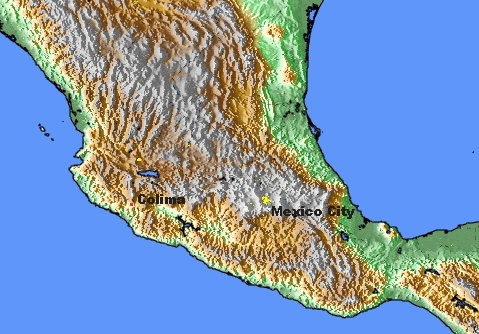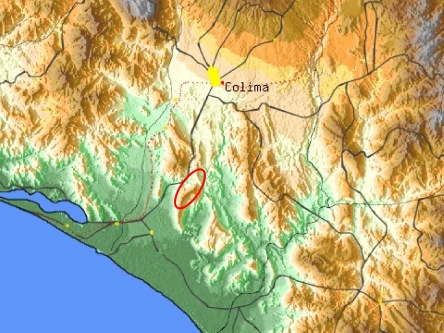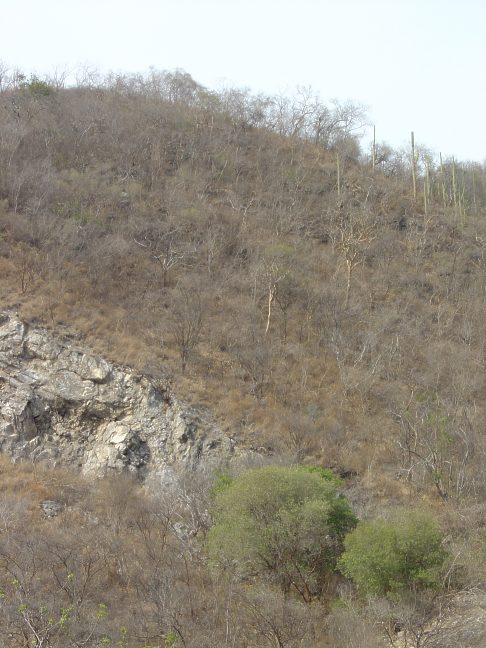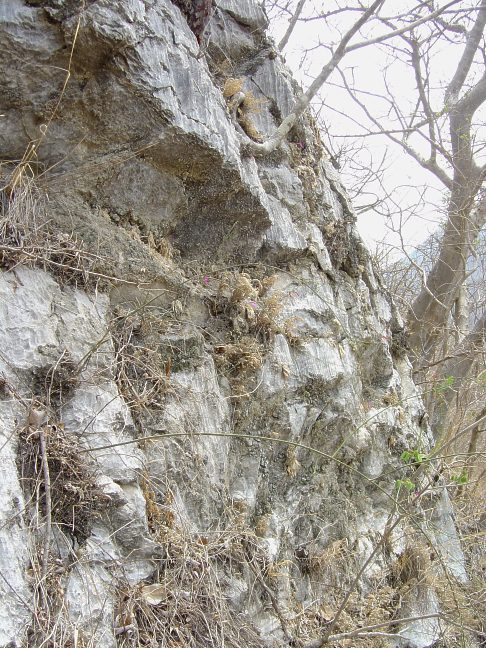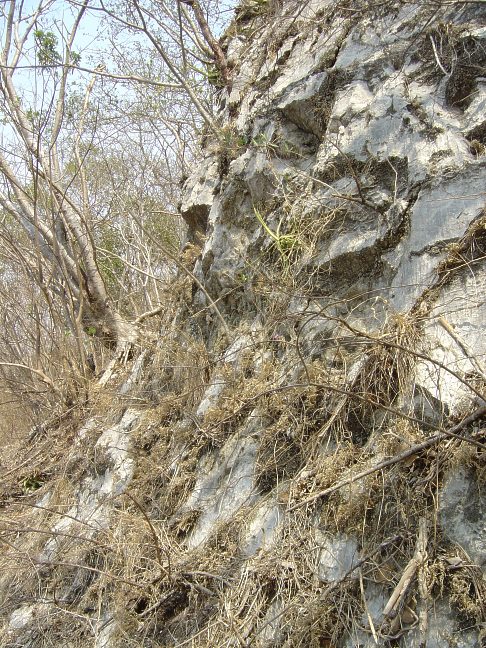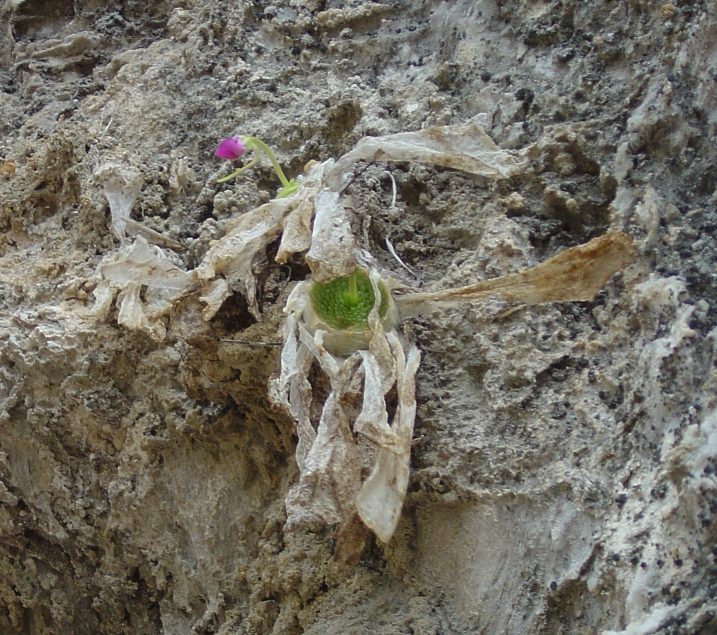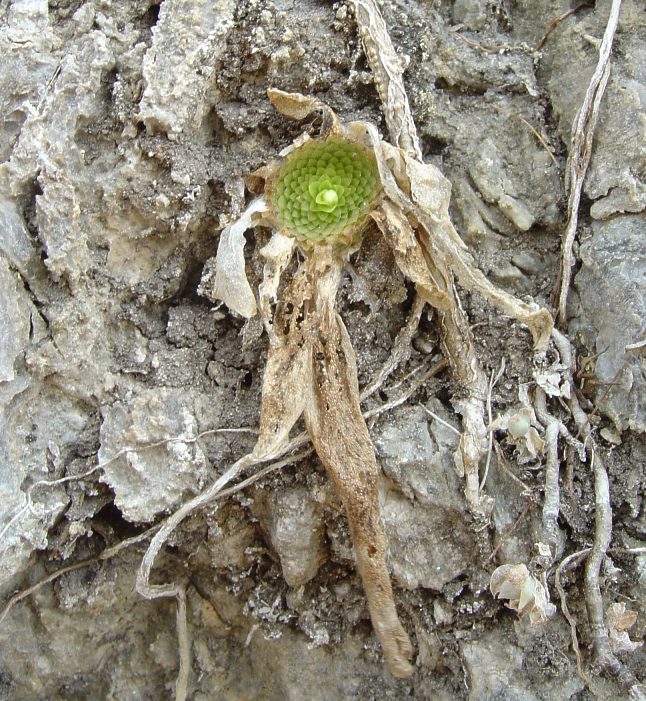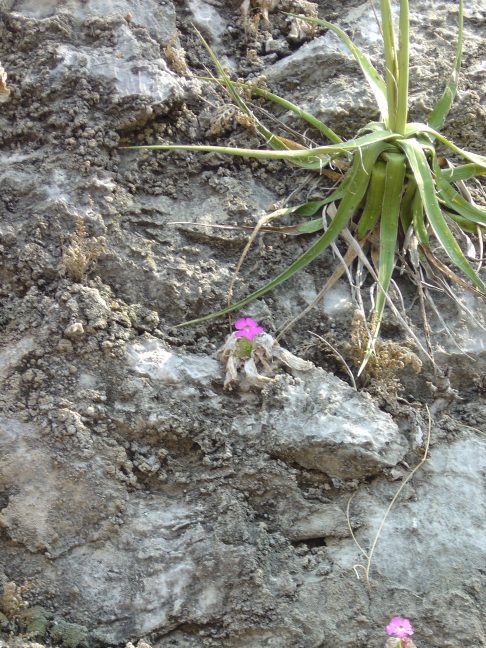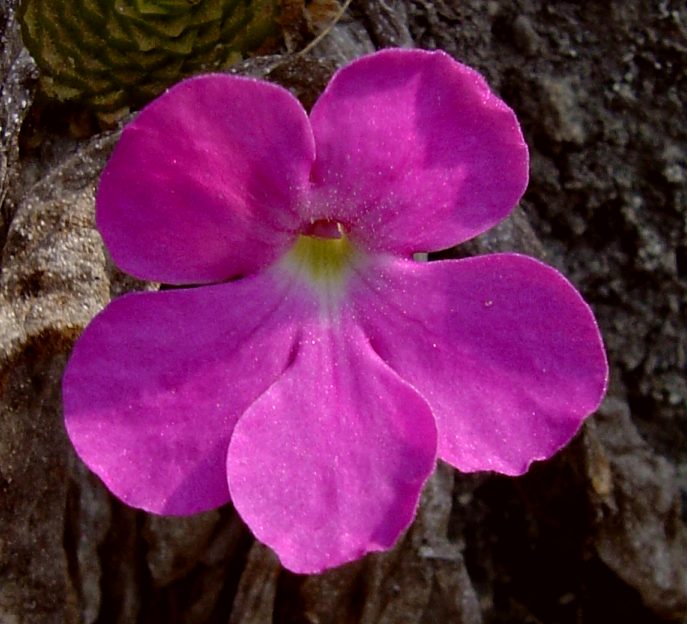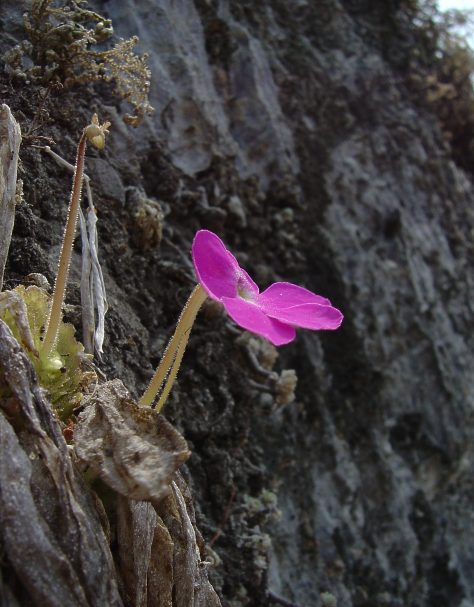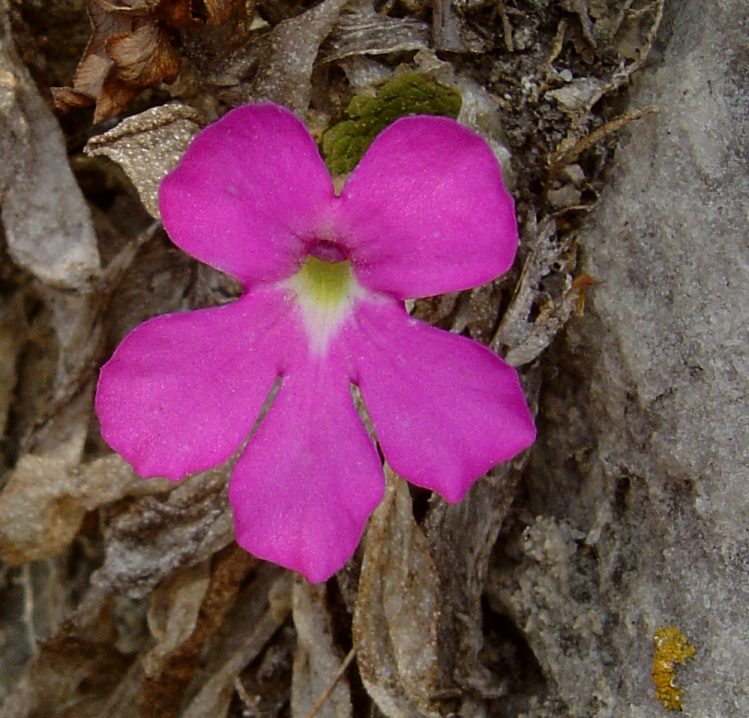
Oliver Gluch's World of Carnivorous Plants or: "What you always wanted to know about butterworts" |
| Impressum |

| Home | Origin | Prey | Species | Plant Purchase | Other Carnivorous Plants | Info about Carnivorous Plants | About me |
Pinguicula colimensis McVaugh & Mickel (1963)Topographic
map
of Central Mexico with the location of the capital of
the State of Colima.
Topographic
map
of the region of Colima with currently known
distribution area of P. colimensis. This hilly
area is only about 30 km away from the Pacific Coast.
Typical
vegetation
of the "bosque tropical caducifolia" with column cacti
at the beginning of the rainy season at the location of
P. colimensis
7th May 2005 P.
colimensis grows directly on vertical mostly north
or southwest facing gypsum at an altitude of about 450 m
a.s.l.
7th May 2005 Most
of
the vegetation is still "dormant" at the beginning of
May; maximum daily temperatures at this time of the year
are higher than 30 °C and cliffs are bone dry.
7th May 2005 Winter
rosettes
with emerging flowers. The old dry summer leaves from
the previous year are still visible. Flowering period of
P. colimensis starts in May and lasts until July.
7th May 2005 Before
the
plants do form new summer leaves, first flowers start to
emerge. The winter rosette often consists of more than
100 fleshy, non-carnivorous leaves. During the dry
season, the only source of water for the plants is the
morning dew that occurs from the occasional fogs coming
in from the sea.
7th May 2005 Flowering
plants
growing together with an Agave species and Selaginella
lepidophylla (only the old brown leaves are
visible).
7th May 2005 Winter
rosette
(in
cultivation).
Emerging
summer
leaves with new flower bud (in cultivation). The glands
of P. colimensis are amongst the largest within
the genus Pinguicula.
Face
view
of a flower with overlapping petals.
7th May 2005 lateral
view
of a flower and an unripened seed capsule (the spur of
the flower can reach a length of up to 4 cm).
7th May 2005 Face
view
of a flower where the petals don't overlap.
7th May 2005 Face
view
of a flower (in cultivation).
Lateral
view
of a flower (in cultivation).
|
